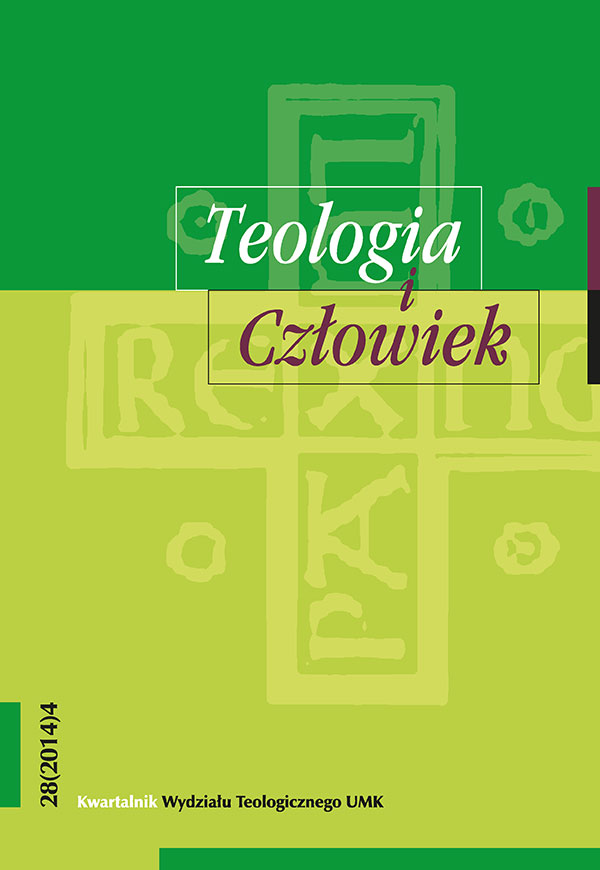The nature of the prayers of blessings in the Polish edition of the liturgy book
DOI:
https://doi.org/10.12775/TiCz.2014.063Keywords
blessings, formulas, signs and symbolsAbstract
Since the appearance and development of the official Old- Testament cult, through the origin of Christianity, till the coming into being of contemporary rites, the act of summoning God’s blessing has been accompanied by specific words and behaviour. The most significant elements of the act of giving God’s blessing include preaching the Word of God and the prayer of the Church, which summons God’s action. Appropriate orations are of depricative (imploring) or performative (summoning-appointing) character. According to the rules it is mostly clergymen who can be the ministers of blessings, although some benedictions might be expressed by the laymen as well. The rites, depending on the minister who performs them, may differ in terms of the application of gestures and symbols which accompany the prayers said. Generally, it is a reserved right for the clergy to make the sign of the Cross over the people or items to be blessed, perform the acts of extending and the laying on of the hands, as well as incensing. These gestures do not constitute the blessing itself; they are merely the complementation of benediction prayers. Euchologies applied while giving the blessings contain the summons of various specified forms of God’s activity towards human beings, for example: ‘surround them with your care and make them strong’, ‘strengthen their hearts’, ‘guide them’, ‘lift them […], heal them […], give them comfort’, ‘take your Right Hand’, ‘shield them’, ‘aid them’, ‘show Your mercy’, ‘allow them to feel Your intercession’. All the formulas to which it has been referred to above constitute the synonyms for blessing. In the liturgy book there are also such formulas which are not blessings but constitute the act of adoration of God for His actions or the recollection of these actions. The article presents the catalogue of gestures and symbols applied while giving the blessing. Furthermore, the character of euchologic formulas was discussed and the admissibility of applying particular signs by given ministers was indicated.
Downloads
Published
How to Cite
Issue
Section
License
CC BY ND 4.0. The Creator/Contributor is the Licensor, who grants the Licensee a non-exclusive license to use the Work on the fields indicated in the License Agreement.
- The Licensor grants the Licensee a non-exclusive license to use the Work/related rights item specified in § 1 within the following fields: a) recording of Work/related rights item; b) reproduction (multiplication) of Work/related rights item in print and digital technology (e-book, audiobook); c) placing the copies of the multiplied Work/related rights item on the market; d) entering the Work/related rights item to computer memory; e) distribution of the work in electronic version in the open access form on the basis of Creative Commons license (CC BY-ND 3.0) via the digital platform of the Nicolaus Copernicus University Press and file repository of the Nicolaus Copernicus University.
- Usage of the recorded Work by the Licensee within the above fields is not restricted by time, numbers or territory.
- The Licensor grants the license for the Work/related rights item to the Licensee free of charge and for an unspecified period of time.
FULL TEXT License Agreement
Stats
Number of views and downloads: 1441
Number of citations: 0



